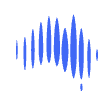
Speaker: Dr. Sonya Pyott
Date: Tuesday 13 August
Time: 10.00am – 11.30am
Location: Australian Hearing Hub, Level 1, Lecture Theatre
Agenda:
10.00am – 10.05am – Welcome
10.05am – 10.45am – Presentation
11.45am – 11.00am – Q & A
11.00am – 11.30am – Networking & Refreshments
Abstract:
The inner ear is responsible for our ability to perceive sound. The sensorineural structures, including the sensory hair cells and auditory neurons, are responsible for encoding auditory stimuli and relaying this information to the brain. Encoding these stimuli requires a repertoire of molecular components about which still very little is known. In this talk, Dr. Pyott will review recent work in her laboratory taking advantage of animal models, transcriptomic sequencing and in vitro and in vivo electrophysiology to catalog these molecular components and determine their contribution to both normal hearing and hearing loss. She will also present more recent work taking advantage of comparative animal models to examine the peripheral auditory system and, as part of her Endeavour Executive Leadership Award Endeavour working with Prof. David Ryugo (Garvan Medical Institute) and Prof. Alan Brichta (University of Newcastle), to investigate how input from the auditory periphery shapes circuitry in the brain. These findings direct new approaches to treat age- and disease-related dysfunction of the inner ear.
Relevant recent papers:
Altered cochlear innervation in developing and mature naked and Damaraland mole rats.
Barone CM, Douma S, Reijntjes DOJ, Browe BM, Köppl C, Klump G, Park TJ, Pyott SJ.
J Comp Neurol. 2019 Oct 1;527(14):2302-2316. PMID: 30861124
Sodium-activated potassium channels shape peripheral auditory function and activity of the primary auditory neurons in mice. Reijntjes DOJ, Lee JH, Park S, Schubert NMA, van Tuinen M, Vijayakumar S, Jones TA, Jones SM, Gratton MA, Xia XM, Yamoah EN, Pyott SJ. Sci Rep. 2019 Feb 22;9(1):2573. PMID: 30796290
The afferent signaling complex: Regulation of type I spiral ganglion neuron responses in the auditory periphery. Reijntjes DOJ, Pyott SJ. Hear Res. 2016 Jun;336:1-16. PMID: 27018296
Bio:
Dr. Sonja Pyott received her B.S. in Biochemistry and Molecular Biology from Penn State University (1999). As part of her undergraduate studies, she did honors research in Chemistry using amperometry and electron microscopy to examine dopaminergic neurotransmission in a molluscan synapse. As a Fulbright Scholar, Sr. Pyott worked with Prof. Christian Rosenmund at the Max Planck Institute for Biophysical Chemistry in Göttingen, Germany using patch clamp electrophysiology to examine mechanisms regulating vesicular release in hippocampal neurons (2000). She then completed her PhD in Neuroscience at Stanford University in the laboratory of Prof. Richard Aldrich. Her doctoral research used a combination of approaches, including patch clamp electrophysiology, immunofluorescence, measurement of auditory brainstem responses, to examine the contribution of BK potassium channels to hair cell physiology and hearing in a mouse model (2006). Dr. Pyott was a postdoctoral fellow in the laboratory of Prof. Elisabeth Glowatzki and examined the role of metabotropic glutamate receptors to regulation of efferent inhibition of inner hair cells (2007). From 2007 to 2014, Dr. Sonja Pyott was assistant professor in the Department of Biology and Marine Biology at the University of North Carolina at Wilmington. Dr. Sonja Pyott is currently assistant professor in the Department of Otorhinolaryngology at the University Medical Center Groningen and University Groningen in the Netherlands. Her research continues to take an interdisciplinary approach to understand the molecular mechanisms regulate the peripheral auditory system and more recently investigating how input from the auditory periphery shapes circuitry in the brain.
Registration: Entry is free and open to the public.
Please register by Friday 9 August 2019 to louise.dodd@mq.edu.au
If you wish to claim this event as a non-endorsed Category 1 activity through Audiology Australia, please notify the registration desk before the seminar and an certificate of attendance will be emailed to you after the seminar.





